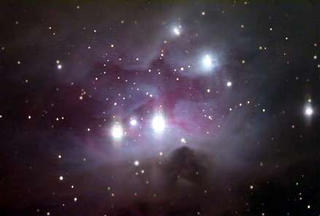Cosmologists A. Coley from Canada's Dalhousie University and B. Carr from Queen Mary University in London, have published a paper on arXiv, where they suggest that some so-called primordial black holes might have been created in the Big Crunch that came before the Big Bang, which lends support to the theory that the Big Bang was not a single event, but one that occurs over and over again as the universe crunches down to a single point, then blows up again, over and over.
 Cosmologists Alan Coley from Canada's Dalhousie University and Bernard Carr from Queen Mary University in London, have published a paper on arXiv, where they suggest that some so-called primordial black holes might have been created in the Big Crunch that came before the Big Bang, which lends support to the theory that the Big Bang was not a single event, but one that occurs over and over again as the universe crunches down to a single point, then blows up again, over and over.
Cosmologists Alan Coley from Canada's Dalhousie University and Bernard Carr from Queen Mary University in London, have published a paper on arXiv, where they suggest that some so-called primordial black holes might have been created in the Big Crunch that came before the Big Bang, which lends support to the theory that the Big Bang was not a single event, but one that occurs over and over again as the universe crunches down to a single point, then blows up again, over and over.
The idea is based on the fact that the Earth, and the rest of the known universe is occasionally bombarded with unexplained bursts of gamma rays; something that could, according to Coley and Carr, be the result of primordial black holes running out of energy and disintegrating.
Primordial black holes are thought to be of a different type than the regular kind that are formed when a supernova occurs, leaving a void that is filled by the entity that is commonly known as a black hole. Many theorists support the notion that there does exist other types of black holes that were formed in the first “moments” after the Big Bang; black holes that would be smaller and created by the energy of the Big Bang itself. In this new theory, however, Coley and Carr suggest that some of these black holes, if they do actually exist, might have been created by the collapsing universe as part of the Big Crunch, and then somehow escaped being pulled into the pinpoint singularity comprised of everything else. And then, after the Big Bang, they simply assimilated with the newly formed universe. One problem they agree on is that it would likely be impossible to tell the difference between pre and post Big Bang primordial black holes.
It’s all purely speculation of course, as no one has ever actually seen a primordial black hole, or even offered much proof that they exist, but it does raise very difficult questions; ones that are impossible for scientists much less casual observers to answer. Questions such as, if the universe contracts, then blows up, over and over, has this gone on forever? Or is it possible that our view of the universe is so limited that we’re only seeing one tiny fraction of it, and thus, any theories or explanations we offer, are little more than guesses. And finally, maybe the hardest one of all; is it possible that the universe actually goes on forever; that it has no boundaries or borders? Which would mean the Big Bang was actually little more than one tiny event going on in one small part of an endless expanse.
It’s possible that no matter how long we as a people survive, we’ll never really know the answers to such questions, which might in the end mean, we’ll just have to take our theories on faith.